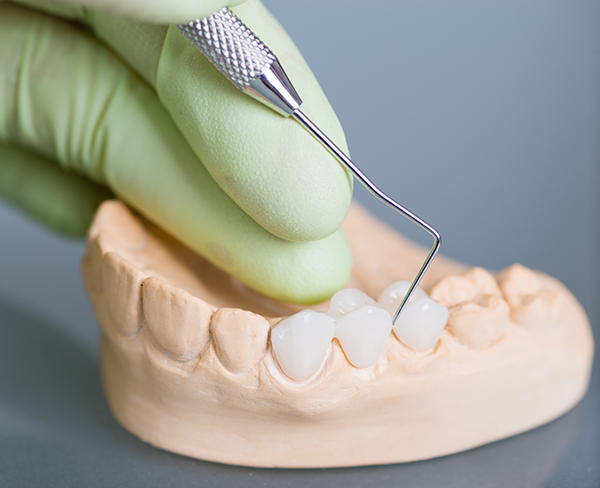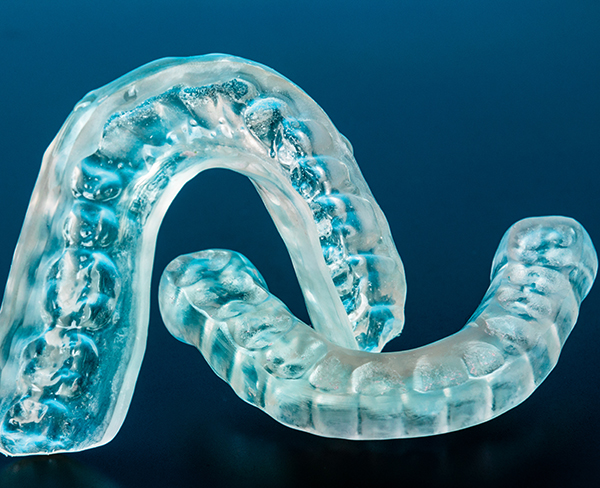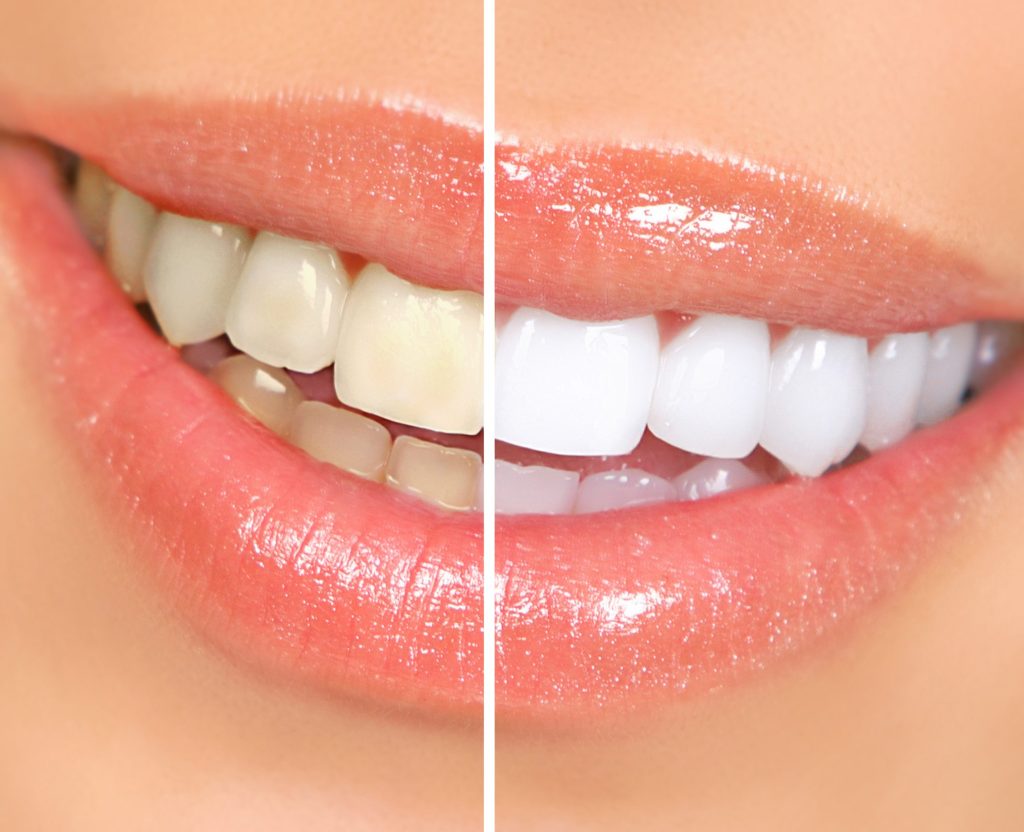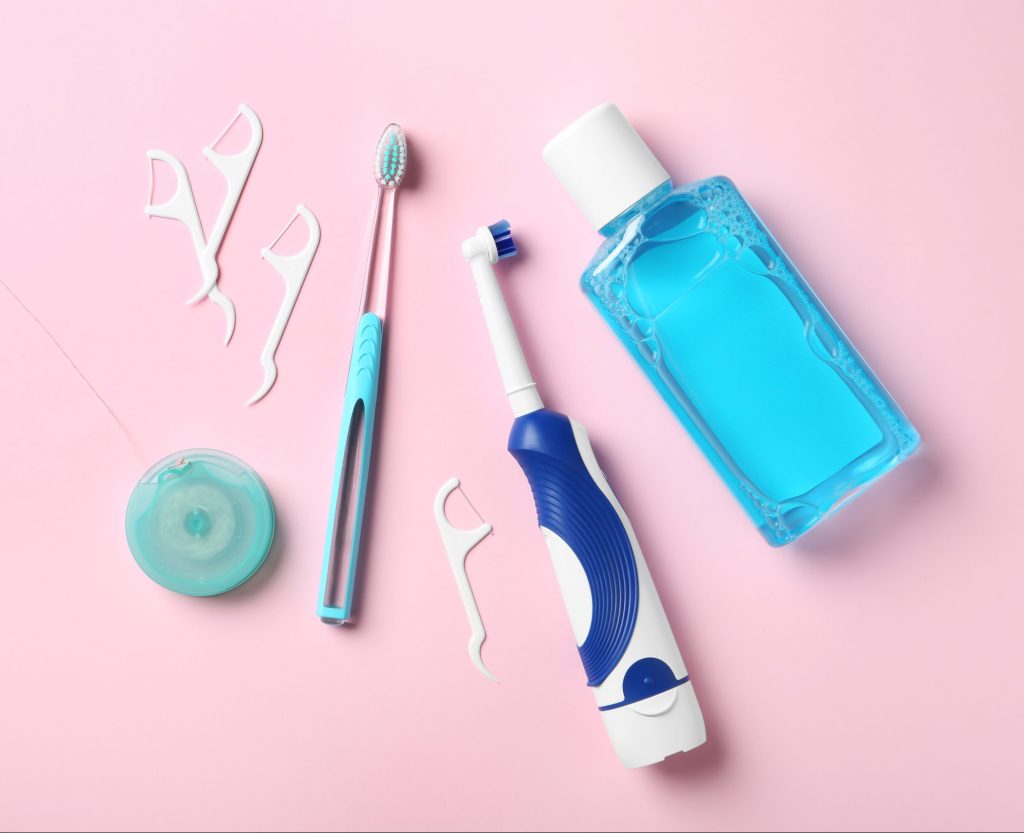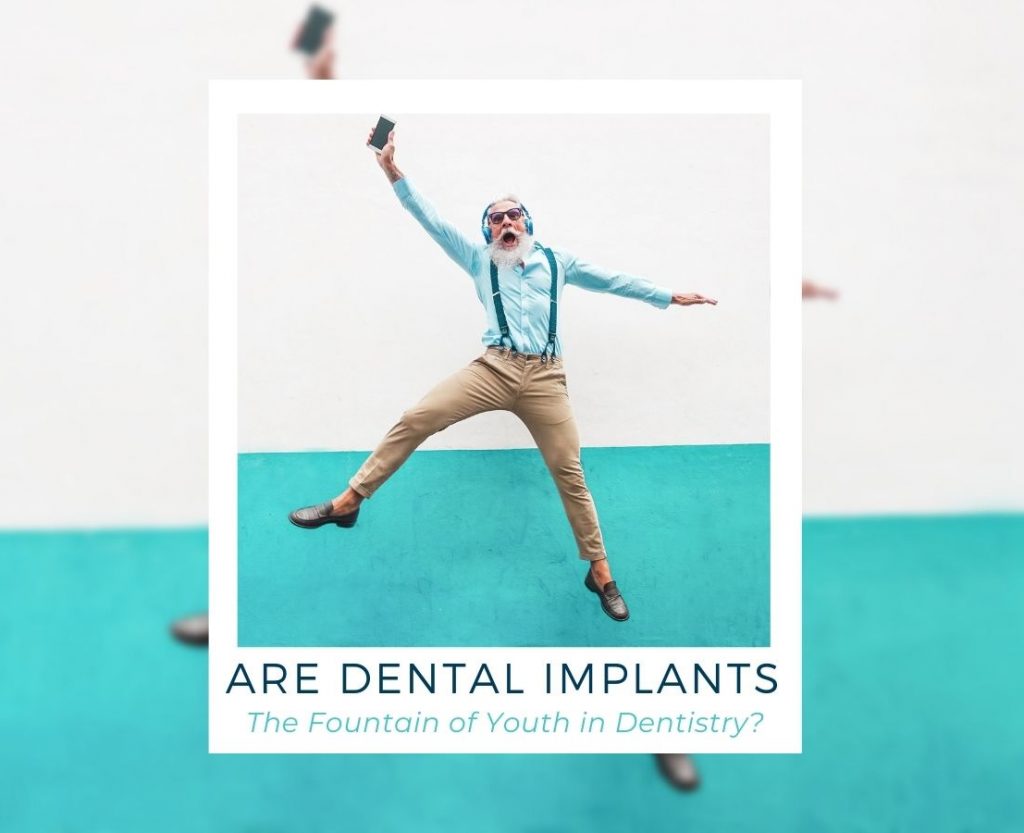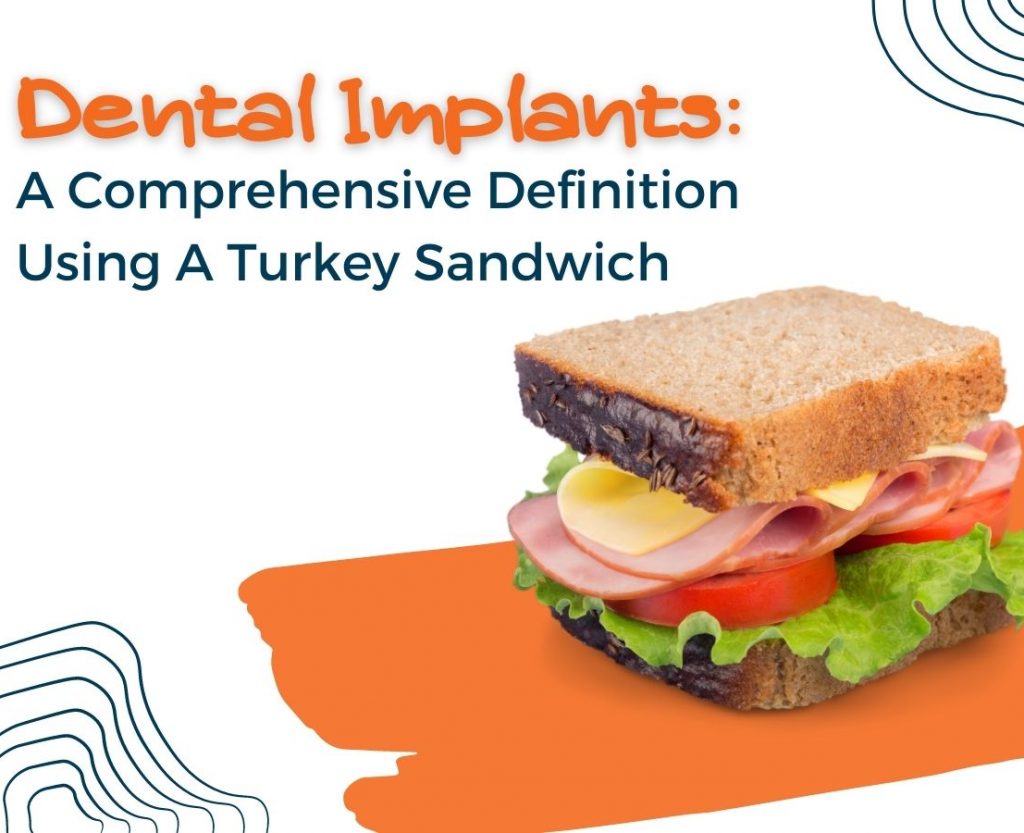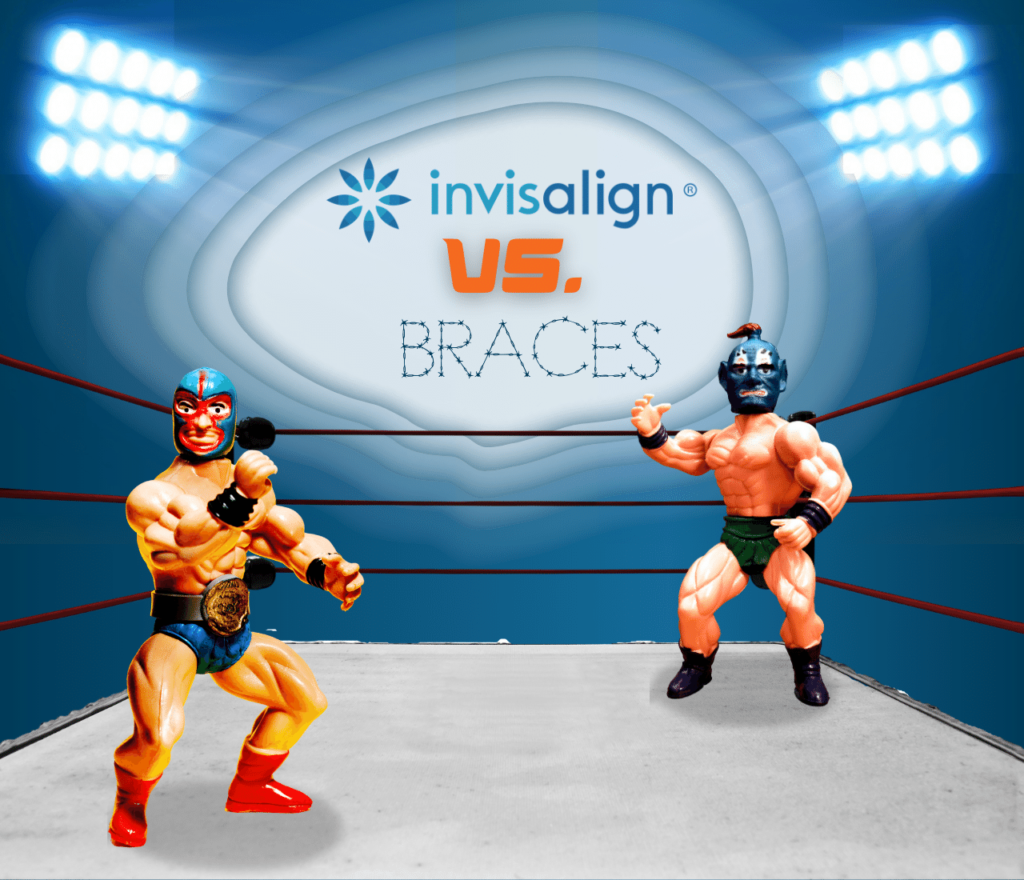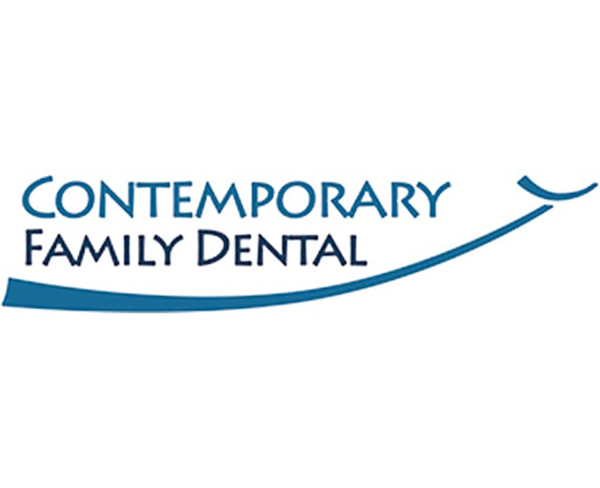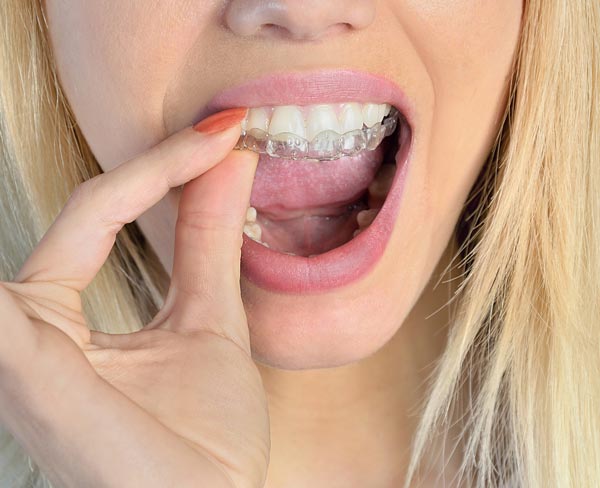Dental Blogs
- All
- Additional Services
- Cosmetic Dentistry
- Dental Technology
- General Dentistry
- Restorative Dentistry
- Uncategorized
Bleeding Gums: Causes That Go Beyond Hard Brushing
Gum health can often go overlooked compared to teeth. For example, many patients may focus on the color of their teeth or if there’s any pain there while certain symptoms of gums in jeopardy, such as when they’re bleeding, get shrugged off. Our Grand Rapids, MI, dentists are here to encourage everyone to make sure all aspects of your smile are getting cleaned and to take note of any warning signs. Here are 4 causes of bleeding gums other than improper tooth brushing and how our dentists can help restore your smile. Your Gums Might Be Bleeding Because Of: 1. Gingivitis or Advanced Gum Disease (Periodontitis) It’s common to experience bleeding gums when the earliest stage of gum disease, gingivitis, has begun to set in. That’s because of the harmful plaque that’s built up above and below the gum line. When plaque isn’t cleared away, bacteria grows and attacks the gum tissue, increasing its sensitivity. Luckily, gingivitis is reversible with regular tooth brushing, flossing, and teeth cleanings every 6 months. Periodontitis, on the other hand, is long-term, irreversible, and what gingivitis can turn into if left untreated. In addition to cleanings, our dentists can alleviate your bleeding gums and advanced...
TMJ Disorder Treatment: 3 Noninvasive Options
For mild to moderate jaw pain, the most serious ways of approaching care aren’t always the best to go with, at least not at first. Because of this, our Grand Rapids, MI, dentists, prefer to meet and fully assess your condition before tailoring a TMJ disorder treatment plan to you. Here are 3 easy to manage TMJ therapy options that don’t involve surgery. Multi-Step Examination Process While not all jaw issues are immediately TMJ dysfunction, oral pain is still something that should be taken seriously. Our team of dentists will utilize several diagnostic methods and possibly even consult with your primary care doctor to be sure what you’re experiencing is indeed a TMJ disorder. First, we’ll start with a dental exam where we’ll observe: How well you can open/close your mouth (range of motion) Whether you notice discomfort if certain areas of your face or jaw are pressed The feeling of your jaw joints as you open/close your mouth Anything abnormal found will be further examined using dental X-rays. Looking beneath the surface will allow our dentists to confirm any suspicions they may have and gather additional information that can influence your treatment. If our dentists believe that other scans,...
Is It Time for a Dental Bridge?
However you found yourself with a tooth or a few teeth missing, our Grand Rapids, MI, dentists have several ways you can reclaim your smile. An appealing option for many patients is a dental bridge because of its permanency and how it looks as though it has always belonged. Here’s how dental bridges work and whether your smile would benefit from having one placed. What Are Dental Bridges? Appropriately named, a dental bridge literally “bridges the gap” left by one or more missing teeth. It is a fixed, or permanent, solution that replaces lost teeth and gives you a beautifully natural smile. Traditional dental bridges consist of two or more dental crowns with a false tooth in between. The crowns are placed over anchoring teeth on either side of the gap, also known as “abutment teeth”. Bridges can also be supported by dental implants if natural teeth are not present. Why You Might Need a Dental Bridge Every patient is different. Our dentists will need to examine your entire mouth to determine what will work best for you. We may even find that other restorative solutions like dental implants are the more appropriate choice. Placing a dental bridge may be...
Night Guards: Signs You Need One & How They Work
Mystery headaches or jaw pain when you wake up could be any number of things but for most people, the culprit is often either bruxism or a TMJ disorder. Fortunately, a custom-made night guard from our Grand Rapids, MI, dentists can help ease the discomfort felt in the mornings. Here are a few details about night guards and when it’s time to ask our dentists about getting one of your own. Explaining Bruxism and TMJ Disorders Experienced by many worldwide, bruxism is a common condition in which you grind and clench your teeth excessively. It can happen during the day or at night and oftentimes goes unnoticed by the affected individual. Both adults and children can experience bruxism. Fortunately, most cases are easily treated with dental appliances, like night guards. More often than not, bruxism results from high levels of stress, anxiety, or an abnormal bite. Temporomandibular joint, or TMJ disorders can also play into an individual’s need for a night guard. Think of your temporomandibular joint as a sliding hinge that connects the jawbone to your skull. When there is compromised or dysfunctional movement of the jaw joint, pain can occur in the facial muscles. Our dentists will have...
What Counts as a Dental Emergency?
It’s normal to feel worried or panicked when something is wrong with your smile. Our Grand Rapids dentists understand this but ask that you use discretion when evaluating your oral health issue. Not everything is worthy of immediate treatment or fits into the category of dental emergencies. Here’s what classifies as a dental emergency and when we recommend seeking care from our team of dentists. How to Tell It's an Emergency As soon as any type of pain is felt in your mouth, it can be easy to label it as an emergency. While it is wise to ask our dentists about discomfort you may be feeling, not everything is severe enough for a visit. Urgent dental emergencies include: Knocked-out tooth Broken or cracked tooth Abscessed tooth Persistent or severe toothache Soft tissue injuries (to cheeks, gums, tongue, or lips) that result in bleeding Are you experiencing one or more of the above? Call our Grand Rapids dental office right away and our team may evaluate your teeth and gums. Appropriate treatment will then be determined to alleviate your condition. What You Can Do at Home (Before Seeing Us) It goes without saying that a dental emergency is best treated...
How Are Cosmetic Bonding and Contouring Different?
Not everyone is pleased with their smile. For that reason, our Grand Rapids cosmetic dentists are here to help you feel more confident with a range of treatments. Two of which are cosmetic bonding and cosmetic contouring. Though they sound similar, they are in fact different. Here’s a breakdown of the two procedures. 1. Cosmetic Bonding Do you have chipped, cracked, or gapped teeth? If so, there is a chance that cosmetic bonding might be the right dental procedure for you. Best for smaller restorations, bonding involves the application of a tooth-colored composite resin to a tooth’s surface. The material is then shaped, hardened, and polished for a natural and visibly seamless result you’ll love showing off. Compared to other cosmetic procedures, bonding is an affordable, effective option most appropriate for teeth in areas of low bite pressure, i.e., front teeth. It should also be noted that minimal enamel is removed by our dentists during the procedure, but more of your natural tooth structure is preserved unlike with veneers. In general, bonding can be used to: Enhance the look of discolored teeth Repair decayed, chipped, or cracked teeth too minor for a crown Close spaces between teeth Elongate certain teeth...
4 Reasons People Avoid the Dentist (and Shouldn’t)
For many people out there, there’s one thing they haven’t done in some time and that’s visited the dentist. A variety of factors may be at play to prevent a trip but regardless, if you identify with this group, you’re not alone. Our Grand Rapids dentists have treated countless patients who have gone months or even years without seeking oral care. Here are 4 reasons why people skip out on the dental office and how we can help you get back on track if you’re in a similar boat. The Importance of Regular Cleanings You’ve likely heard it before, but our dentists recommend that you receive a teeth cleaning and exam every six months unless directed otherwise. Professional cleanings at least twice a year help ensure that any built-up plaque or tartar is removed from your teeth. Of course, brushing your teeth at least twice a day and flossing daily are beneficial. However, these habits alone do not effectively get rid of all bacteria, plaque, and tartar. Specialized dental tools and one of our trained hygienists are needed for that task as some buildup, namely tartar, can prove too stubborn to remove on your own. It’s Common for People to...
Why You Might Need Full Mouth Restoration
We all have busy schedules and pausing our daily routines for the improvement of our smile isn’t always in the cards. However, it’s important to consider how much you show your teeth and whether you feel confident. If you’ve suffered from a recent accident or have neglected your oral care, our Grand Rapids dentists may recommend a full mouth restoration. Here’s what you need to know about the full mouth restoration process and the instances in which it may be necessary. What Is Full Mouth Restoration? Full mouth restoration, also known as full mouth reconstruction or rehabilitation, consists of multiple procedures that are all designed to restore teeth in the upper and lower jaws. It has a cosmetic component in that the end result looks naturally beautiful, but it isn’t solely a smile makeover. The goal of full mouth rehab is to help a person comfortably smile, eat, and speak. This multi-pronged treatment starts with an oral exam and possible dental X-rays that will allow our dentists to see exactly what needs to be done with regards to your teeth, gums, and jaws. From there, we can create a personalized treatment plan, so you receive the care you truly need...
Can Yellow Teeth Become White?
We have good news: you don’t have to live with yellow teeth forever! That’s right, our Grand Rapids cosmetic dentists offer both professional in-office and at-home teeth whitening treatments for patients wanting a brighter smile. Whether your smile has dulled due to dietary habits, aging, or other factors, effective solutions are within reach. Here's what you need to know about tooth discoloration, how our dentists can help, and natural “remedies” that are best avoided. Common Causes Behind Discolored Teeth Most of the time, the hidden cause behindyellowed or discolored teeth is not so hidden after all. For example, if you’re like many adults around the world, you drink coffee in the mornings. Unfortunately, coffee can easily stain your teeth when consumed on a regular basis. Avid tea drinkers also fall into this camp thanks to its intense color pigments that cling to your enamel. The pigments are known as chromogens and are contained in other beverages like red wine as well. Your teeth changing color can also be attributed to: Smoking or other tobacco use Natural aging Oral trauma or injury Certain medications Excessive fluoride exposure (fluorosis) Poor dental hygiene If you identify with one of the reasons listed above,...
Common Signs a Filling Has Fallen Out
Cavities happen. Fortunately, our Grand Rapids dentists can use tooth-colored fillings to treat them and restore your smile. While fillings are built to stay secure and in place for quite some time, they can fall out under certain circumstances. Here are 4 signs that can mean your filling has fallen out, the possible underlying causes, and what to do next. Why Would a Filling Come Loose? A tooth filling can come loose for a variety of reasons. Potential causes can range from a new cavity that’s developed under or around the filling to teeth grinding at night. Whatever it ends up being, you’re left with the same result and should see one of our dentists so we can replace the filling. Waiting or prolonging treatment will only increase your risk of developing complications so now is not the time to drag your feet! Other reasons for a loose/absent filling may include: Dental trauma, accidents, and facial injuries Consumption of hard, sticky, or crunchy foods Hard chewing while eating Chemical reaction that affects the bond of the filling to the tooth Most often, it’s obvious when a filling starts to loosen up or falls out. For instance, some patients notice while...
6 Easy Tips for Preventing Cavities
No one likes having tooth pain or sensitivity and finding out the source is a pesky cavity. Fortunately, there are ways that you and our Grand Rapids dentists can help prevent cavities altogether. While we expect to see you in for your regularly scheduled cleaning, you can also fight tooth decay outside of our dental office. Here’s what you need to know about cavities and 6 tips for avoiding them. What Is a Cavity? A cavity is a hole in the tooth that has been caused by tooth decay. Any individual, no matter their age, can develop cavities if proper oral hygiene habits are not practiced. For many patients, cavities occur due to a combination of foods consumed and inadequate brushing. Despite being preventable, cavities are very common. They’re also easily treated so you can enjoy a healthy, restored smile. When one is found, our dentists will remove the decay and treat the affected area with a tooth-colored filling. With this type of filling, no one will be able to tell you’ve had a cavity filled as the material used matches your natural tooth enamel. You can smile confidently knowing there is no risk of any metal showing at all....
5 Popular Smile Correction Procedures
A smile is something you should be proud of and want to confidently show off to everyone in your life. Life is too short to cover your mouth every time you laugh with friends or get caught in a candid photo. You deserve to feel your best and a great way to get started is with help from our Grand Rapids cosmetic dentists. At Contemporary Family Dental, we offer several forms of cosmetic treatment to choose from. If you’re not sure or only vaguely have an idea of what you’d like to do, we can perform an oral examination and make recommendations. Here’s how 5 cosmetic dental procedures can benefit your life and what each one involves. Why Choose Cosmetic Dental Treatment? Cosmetic dentistry can seem intimidating at first if you don’t know which procedure you should pursue. However, when you settle on one (or multiple), it can be life-changing. Simply seeing yourself in the mirror with new veneers or brighter teeth can give you a much-deserved confidence boost. Related Post → Can Cosmetic Dentistry Improve Your Quality of Life? The main goal of cosmetic dentistry is to improve the appearance of your teeth and gums. It is widely accepted...
When Should You Have a Dental Crown Replaced?
Most dental restorations from our Grand Rapids, MI, dentists are designed to last for a significant period of time, although not forever. Unfortunately, even with proper care, everyday life can still catch up with restorative solutions like dentures, dental bridges, and yes, porcelain crowns. But when is the right time to replace a dental crown? Our dentists will first need to perform an oral examination to see exactly what the issue is before determining next steps. If there is obvious damage and or you are experiencing pain where your original crown was placed, please don’t hesitate to contact our office. Here’s what you need to know about the longevity of dental crowns and when you should have them replaced. How Long Do Dental Crowns Last? No one wants to undergo a restorative procedure only to have what's placed quickly deteriorate soon after. Fortunately, dental crowns can last up to 15 years, or sometimes longer, if proper oral hygiene is practiced. Brushing at least twice a day and flossing daily will keep plaque from building up and causing damage to your crown(s). Read More → 6 Easy Tips for Preventing Cavities The lifespan of a crown is also dependent on an...
Types of Dental Emergencies You Should Never Ignore
Pushing aside a serious dental issue is never recommended and can result in permanent damage if it’s not treated soon enough. A dental emergency requires the swift attention of our Grand Rapids, MI, dentists to ensure your teeth and gums do not worsen beyond simple treatment. Here are a few of the most common dental emergencies and how to act when faced with one. What Constitutes an Emergency? When you’re experiencing dental pain, anything can seem like it qualifies as an emergency. In actuality, a dental emergency describes an instance where there is unexpected severe pain, discomfort, or trauma to the mouth. Read More → 5 Ways to Prevent Dental Emergencies For example, a minor chip on a tooth is not an emergency but a tooth that has become dislodged is as it poses more of a serious risk to your oral health. Injuries to the teeth or gumscan be harmful and you should seek out immediate care when they occur. Dental emergencies often involve but are not limited to: Bleeding that is uncontrolled and not showing signs of stopping Infection paired with swelling Severe dental pain 1. Knocked Out or Broken Tooth Whether it happens while you’re playing sports...
Tooth Pain: How to Tell When a Toothache is Serious
You’d be hard pressed to find someone out there that loves toothaches. They’re difficult to ignore, painful, and can mean something is wrong with your teeth or gums. Any time you are experiencing persistent tooth pain it’s best to make an appointment with our Grand Rapids, MI, dentists. Here is what you need to know about toothache symptoms, causes, and when it’s time to visit our office. What Defines a Toothache? Regardless of the cause, a toothache is general pain that is in or around a tooth. A handful of factors can contribute to a toothache occurring. Some minor toothaches can be treated with at-home remedies while others end up being more severe. Knowing when to listen to your body and seek professional dental care from our emergency dentists is important. If a severe toothache is not quickly dealt with, there is a chance that tooth extraction will be the only solution. We want to keep your smile healthy at all costs. If your pain is too much to self-manage and lasts longer than 2 days, please contact our Grand Rapids dental office right away. Toothache Causes & Symptoms When it comes to toothaches, it isn’t hard to know you...
Are Dental Implants the Fountain of Youth in Dentistry?
As a child, I remember trekking through the woods behind my house in search of the mysterious fountain of youth. Fast forward 30 years and my lower back pain is no indication of a successful quest. Wouldn’t it be nice if our childhood fantasies actually came true? I mean throw us a bone. At the end of the day, nothing truly lasts forever, but some things last a lot longer than others. So, how does this relate to dental implants? While they can’t last a lifetime they can outlast you. How Long Do Dental Implants Last? Has your mother or father ever said, “this is why we can’t have nice things”? Maybe you dropped your phone or left your windows down in a thunderstorm. The point is things, last longer when properly cared for. Dental implants are no different. Let me ask you a question. If your oil change light came on would you say, “that's just a recommendation, Ol’ Bessie here can take a few thousand more miles”? Fast forward a few thousand miles and you may find yourself on the side of a highway during rush hour. You then proceed to get your car towed only to have...
Dental Implants: A Comprehensive Definition Using a Turkey Sandwich
Let me ask you a question… how often do you speak and chew in a day? The simple answer is: A LOT! For me my bites are heavily influenced by what is brought home from the grocery store (if it’s a bag of chips and salsa - game over). On a real note, we speak an average of 7,000+ words a day. If you are missing a tooth or multiple teeth those 7,000+ words and countless bites become more difficult. So what’s the solution? Dental implants, the most durable device for replacing teeth. Even better, they look and function like real teeth! What are Dental Implants? The typical Google definition is: a surgical component that works with the bone of the jaw or skull to hold a dental prosthesis like a crown, denture, bridge, facial prosthesis or to act as an orthodontic anchor. This definition sounds like it was pulled straight from a 700 page dental school textbook, not super helpful. I mean what even is ‘dental prosthesis?’ Here is a better definition for those of you who don’t pass time reading medical textbooks and journals: think of dental implants like tree roots. Roots become part of the soil, similarly...
Oral Hygiene Tips for Baby Boomers
If you’re part of the Baby Boomer generation and were born between 1946 and 1964, it’s likely your dental health is not a high priority. Maybe you’re dealing with other health issues, or maybe you believe that whatever chance you had to protect your oral health is long gone. However, our Grand Rapids, MI, dentists urge that it’s never too late to practice better oral hygiene for a healthier smile. This is the last blog post in our “Oral Hygiene Tips” blog series. Throughout this series, we’ve explored the different oral health risks people must face at different stages of life. Our dentists have helped patients of all generations improve their oral health and protect their smiles. Here are actions that Baby Boomers and seniors in general can take to protect their teeth and gums. Oral Health Risks for Baby Boomers Although seniors may be more at risk for oral health problems, every patient is different. A lifetime of good oral hygiene habits can go a long way in protecting your smile as you enter retirement. However, some health risks strike without warning and may complicate your dental care. Our family dentists are here to help no matter what the...
Here’s Why Invisalign Would Win A Cage Match Against Braces
Invisa-what? Invisalign is a form of clear aligners used in orthodontics to straighten teeth. Think of them like braces… just better. Now, I don’t just say that without proof. Here’s why Invisalign would win in a cage match against braces: 1. Growing up did you ever dream of having a superpower? Maybe it was flying or super strength, but what about invisibility? Invisalign gives your teeth just that… like its name implies they are virtually invisible. Sure it’s not a real superpower, but it beats traditional braces, which are definitely NOT invisible! 2. Think to yourself, “do I like… popcorn at the movies eating my kid’s hard candy from Halloween while they sleep the redeeming quality of gum after a few pieces of garlic bread starting my day with a freshly toasted bagel downing a bag of chips while watching Sunday night football Or what about nuts, ice (I mean come on... ICE?), chewy candy, pizza crust, crunchy vegetables and fruits, hard crackers, pretzels, etc.” Chew on that, no pun intended. Those are all pulled from a list titled, “Foods To Completely Avoid With Braces.” Guess who wins round 2 of the Invisalign vs. Braces cage match? You guessed it - Invisalign. All of those...
Oral Hygiene Tips for Generation X
Many patients born between 1965 and 1980—part of what’s more popularly known as Generation X tend to feel pretty confident about their oral health. After all, you’ve been brushing and flossing for literal decades, and certain dental treatments from our Grand Rapids dentists like dentures still feel far off in the future. However, even middle-aged adults still have a thing or two to learn about oral hygiene. As we grow older and change, so do our teeth and gums. Each stage of life presents new challenges to maintaining a healthy smile. In our “Oral Hygiene Tips” blog series, we’re examining the oral health risks and healthy practices of different generations. Previously, we’ve looked at oral hygiene tips for children, Gen Z, and millennials. Let’s now look at what Generation X should pay attention to with regards to their oral health. Oral Health Risks for Generation X Even if you’ve been practicing good oral hygiene habits for decades, your age puts you at an increased risk for certain health issues. For Gen Xers, you’ll need to keep an eye out for symptoms of two major oral health problems: periodontal disease and obstructive sleep apnea. 1. Periodontal Disease Nearly half of Americans...
Oral Hygiene Tips for Millennials (Ages 25–40)
Millennials are now the largest generational cohort in America. They include everyone from young adults graduating from college to CEOs of Fortune 500 companies to parents leading PTA meetings. They also, unfortunately, include adults dealing with more serious oral health issues, possibly for the first time. In our Oral Hygiene Tips blog series, we’re examining the oral health risks and healthy practices of different generations. Our Grand Rapids family dentists have helped patients of all ages achieve healthier smiles. Previously, we’ve looked at oral hygiene tips for children as well as preteens and teenagers. Now, let’s take a look at the state of oral health for the millennial generation (ages 25–40, for our purposes). Oral Health Risks for Millennials In general, there are two major oral health risks to keep an eye on as you enter your twenties and thirties: Gum disease Stress-related oral health issues Gum Disease Periodontal disease (also known as gum disease) can strike at any age, but it becomes particularly prevalent at this stage of life. In fact, nearly half of all adults ages 30 and older have some form of periodontal disease, according to the Centers for Disease Control and Prevention (CDC). Specifically, you’ll want...
Oral Hygiene Tips for Gen Z (Ages 6–24)
Adolescence is famous for being a season of change, especially in the body. However, many people forget that your oral health needs also change during this time. The oral hygiene tips you learned as a child may need to be tweaked or expanded to serve you well as a teenager. In our Oral Hygiene Tips blog series, we’re diving deep into the oral health concerns you should be aware of at every age. Our Grand Rapids family dentists are eager to help patients adopt new oral health practices at different life stages. Our first blog dealt with oral health risks and hygiene tips for children. In this blog, let’s take a look at common risks and practices for Generation Z, more commonly known simply as Gen Z. Oral Health Risks for Preteens and Teenagers Preteens and teenagers need to pay special attention to the following aspects of their dental health: Dental emergencies Orthodontic treatment Eating disorders Gum disease and oral cancer Dental Emergencies It’s estimated that three out of four American households have at least one school-aged child participating in youth sports. While sports are a great form of exercise, they can also unfortunately be the cause of many dental...
Oral Hygiene Tips for Children (Ages 0–9)
Did you know that different oral health risks occur at different ages? That means you’ll need new oral hygiene habits and dental treatments at each stage of your life. Don’t worry though, our Grand Rapids dentists will help you along the way as you move through every phase. In our Oral Hygiene Tips blog series, we’re looking at the kinds of oral health issues you should expect and the habits you should practice at certain ages to avoid said issues. For our first blog, here are some oral health risks and hygiene tips for children. Top Oral Health Risks for Children The two most prevalent health risks for young children under the age of 9 are cavities and common dental emergencies. While cavities are preventable, the same can’t always be said for an emergency. Fortunately, whether your little one needs a filling, urgent dental care, or a professional cleaning, our dentists are here for your family. 1. Cavities Approximately 42% of children ages 2 to 11 have had dental caries (cavities) in their baby teeth. While this statistic is troubling, you may be thinking, “Wait a minute — why does it matter if cavities form in baby teeth? Aren’t they...
5 Ways to Prevent Dental Emergencies
Dental emergencies can be just as urgent and dangerous as other health emergencies. However, you don’t have to wait until you’re in the middle of a dental crisis to see our Grand Rapids, MI, dentists. Here’s what you can do while your smile is still healthy to prevent dental emergencies from happening in the first place. 1. Practice Good Oral Hygiene If you decide to adopt just one preventive practice, make it this one. Practicing good oral hygiene is one of the best things you can do to prevent the onset of a dental emergency. What is good oral hygiene? Our definition, informed by recommendations from the American Dental Association (ADA), includes three easy habits: Brushing your teeth for two minutes, at least twice a day Flossing at least once daily Receiving a professional teeth cleaningevery six months Brushing and flossing get rid of plaque, which is a thin layer of bacteria that damages your teeth and can lead to tooth decay and gum disease. Most plaque can be removed with at-home habits, but any plaque that’s left behind can develop into tartar, which can only be removed by a dental professional. That’s why we recommend getting your teeth cleaned...
Why You Should See the Dentist Every Six Months
Good oral hygiene is the foundation of your oral health. That means brushing your teeth twice a day, flossing daily, and scheduling a teeth cleaning every six months. But if you’re already brushing and flossing, why do you need a teeth cleaning? Do you really need to see the dentist twice a year? The answer is yes — for the most part. Here are a few reasons why you should see your dentist every six months. Get a Stronger, More Thorough Teeth Cleaning Brushing and flossing on your own is critical in preventing tooth decay and gum disease. Plaque, the slick film you feel on your teeth in the morning, forms naturally every day, and brushing and flossing is the only way to get rid of it. If you don’t brush and floss, then bacteria will consume the plaque and produce acids that will wear down your teeth and gums. Plaque that builds up over time eventually turns into tartar, a harder substance that can’t be removed with at-home oral hygiene habits. Even if you’re a devoted brusher and flosser, there may be parts of your teeth that are difficult to reach where plaque can build up over time, turning...
What an Unhealthy Smile Costs You
You may have considered what it would cost to have a healthy smile, but what does an unhealthy smile cost you? When you consider the effects of an unhealthy smile, perhaps you think of crooked or discolored teeth, bad breath, or even tooth loss. But a lack of oral hygiene can lead to health problems beyond those in your mouth. Your body is made of interconnected systems, and the mouth serves as the primary gateway for what enters the body. That means that an unhealthy mouth can result in health problems elsewhere in your body. Similarly, the mouth can serve as a diagnostic tool for other health issues that seem to have little to do with your smile. How Your Oral Health Affects Your Overall Health Did you know your mouth is full of bacteria? Don’t worry — for the most part, this is actually a good thing! A healthy mouth needs to have enough good bacteria to fight off disease-carrying microorganisms that may enter the mouth when you breathe, drink, or eat. Unfortunately, not all bacteria in your mouth are quite so beneficial. Plaque forms naturally on your teeth when you consume sugar or carbohydrates. If not brushed or...
What Is a Dental Emergency? Coronavirus/COVID-19 Dental Help
Dentists offer an essential healthcare service. Contemporary Family Dental is open for emergency dental services and urgent dental care during the COVID-19 (coronavirus) pandemic. But what is a dental emergency? What’s the difference between a dental emergency and urgent dental care? Contemporary Family Dental Is Open for Dental Emergencies A dental emergency is “potentially life-threatening” and requires “immediate treatment,” according to the American Dental Association (ADA). Examples of dental emergencies include: Uncontrolled bleeding Soft tissue bacterial infection with swelling in or around the mouth that may compromise your ability to breathe Facial trauma that may compromise your ability to breathe If you are experiencing a dental emergency, call us immediately for an appointment at (616) 209-3969. Contemporary Family Dental Is Open for Urgent Dental Care Urgent dental care is necessary “to relieve severe pain and/or risk of infection.” These are situations when it’s best for you to see a dentist instead of filling one of the few beds in your hospital’s emergency room. If you’re suffering from any of the following, you can call our office to schedule an appointment with our dentists: Severe dental pain Painful tooth fracture Abscess or infection resulting in swelling Required preoperative treatment for critical...
COVID-19 Updates
COVID-19 Update - June 30, 2021: We are jumping with joy to be able to see all of your beautiful smiles again and grateful to have made it this far together! Thank you for your continued support. We are so very appreciative of you and your trust in us as your dental team. We are excited to share some updated COVID guidelines with you! With the recent changes in the State of Michigan here is what to expect when you visit our office: Curbside Check-In is still an option, however, you are welcome to come in and wait in our lobby when you arrive for your appointment. We do ask that you come by yourself if at all possible. For appointments for minor children, we ask that only one parent or guardian accompany them to the appointment and stay on the premises. We encourage you to wear a mask or face covering into the office, however, it is no longer mandatory. We will be taking your temperature using a touchless thermometer and will ask you to fill out a short COVID-19 screening form. What are we continuing to do to keep you and our community safe? The health and safety of...
How to Maximize Your Remaining Dental Benefits Before They Expire
Your dental insurance likely renews on January 1st, which means if you haven’t yet made an appointment for a dental visit, now is the time. You can maximize your dental benefits by making an appointment for dental treatment before the year is over. Our family dentists want you to know what your insurance covers during a visit to our office. Here are just a few of the procedures you might consider. Teeth Cleanings Your dental insurance will typically cover at least two dental examinations every year, so if you haven’t made an appointment for a teeth cleaning yet, now is the time! Our family dentists are happy to provide teeth cleanings for patients of all ages, so the whole family can feel comfortable in our office. At your dental exam, we’ll thoroughly clean your teeth and check your mouth for any signs of dental issues, such as oral cancer or gum disease. We’ll also remove any plaque that’s built up along your gum line to help prevent gingivitis. Regular teeth cleanings help us monitor your oral health and prevent potential problems from getting worse. Restorative Dentistry If you’ve been putting off dental treatment like fillings, crowns, root canals, or extractions,...
How Do You Get Used to Wearing Dentures?
Our Grand Rapids dentists may recommend dentures to replace missing teeth. Yet, it’s important to understand that there’s a transitional period after placement where you’re still becoming accustomed to wearing dentures. For instance, it’s not uncommon for people to lisp until they get used to speaking around dentures. Patients also may not realize that it’s still important to protect their gum health even with false teeth. Here are a few helpful tips for how to get used to wearing your new dentures. For the Best Dentures Experience, Our Dentists Recommend: 1. Prioritizing Your Gum Health Even if you have full dentures, it’s important that you continue to brush your gums. Otherwise, food particles and plaque will build up on the surface of your gums and increase your risk of gingivitis. While gingivitis is reversible, the same can’t be said once it progresses into periodontitis, a chronic, long-term condition. According to the Centers for Disease Control and Prevention, approximately 47.2% of Americans aged 30 and older have periodontal disease. Don’t be one of them. Since your dentures sit on top of your gums, you’ll want to do everything you can to avoid any stage of periodontal disease. Our dentists recommend...
Am I Too Old to Get Invisalign®?
It's a myth that you can't straighten teeth after a certain age. In fact, many people choose to delay orthodontic treatment until they're able to afford it later in life. While you're never too old to get Invisalign®, it’s important to be aware that your treatment may take longer than if you had started as a teen. In addition, every patient is different. This is why we recommend seeing one of our Invisalign dentists in Grand Rapids, MI. Continue reading to learn why it’s never too late to get Invisalign. Compared to teenagers, adults often make better patients when they: Remember their motivation Don’t take their health for granted Listen to our dentists Practice better oral hygiene Remember Your Motivation Have you ever covered your smile in a group photo? Do you feel self-conscious about your teeth when meeting people for the first time? Your smile affects not only your oral health, but your confidence. Adults are better able to understand the value of a beautiful smile. which is why they're often more motivated to wear their Invisalign braces the necessary 20 to 22 hours a day. Don't Take Your Health for Granted It's easy to take good oral health...
Adjusting to Dentures: The First 30 Days
If you’re thinking about dentures as an option to replace a few teeth or an entire arch, congratulations! Dentures are an effective way to restore the look and function of a natural smile. However, there is an adjustment period in which you’ll need to spend some time getting used to the feeling of having them in your mouth. Our Grand Rapids dentists are more than happy to answer any questions or concerns you have. Here are a few things to keep in mind about the first 30 days with your new dentures. How to Get Used to Dentures: In the First 24 Hours Like the name suggests, immediate dentures can be worn immediately after extracting teeth. If we need to extract teeth, our dentists may prescribe you pain relievers and antibiotics to take as directed while the site heals. It’s important that you don’t remove your dentures during the first 24 hours, so the gums have a chance to heal. Your full dentures act much like a band aid during your first day, which is why you’ll even need to wear your dentures to bed. After 24 hours, we highly recommend removing your dentures before going to sleep. That way,...
Am I a Candidate for the Dental Implant Procedure?
Have you recently lost a tooth? If so, you may be interested in the dental implant procedure to help you smile with confidence. A dental implant is an artificial tooth root (typically made of titanium) that’s placed in your jaw to later support a crown. Unlike dentures, dental implants are stable and often able to last a lifetime with proper care. Continue reading to learn if you’re a candidate for dental implants and how our Grand Rapids, MI, dentists can help. Candidates for Dental Implants The ideal candidate for dental implants is a non-smoker, has healthy gums, and has sufficient bone density in their jaw to support an implant. However, don’t feel like you have to be the “perfect candidate” for dental implants to request a consultation with one of our dentists. There is plenty we can do to find the right solution for your smile. Do You Have Healthy Gums? It’s important to understand that the condition of both your teeth and gums ultimately affect oral health. If you have receding gums due to advanced periodontal disease, you may not be a candidate for the dental implant procedure. This is because teeth are more likely to fall out when...
Are Dental Implants Better Than Dentures?
Our dentists use both dentures and dental implants to replace teeth. Do you know what tooth replacement options are right for you? Each patient is different which is why it’s important to know the pros and cons of each. We are here to help you make an informed decision about your dental treatment. For more information, contact our office today to request a consultation with one of our dental implant dentists in Grand Rapids, MI. Dentures Vs. Dental Implants Dentures Dentures are an oral appliance made to look and function like natural teeth. Depending on the extent of tooth loss, our dentists may recommend a full or partial denture. While a full denture replaces an entire arch of teeth, a partial denture only replaces a few teeth. Dentures sit on top of your gums and must be removed before you go to sleep so your gums have a chance to recover. When you’re not wearing your dentures, they’ll need to be submerged in a glass of water or denture cleanser so they don’t dry out, crack, and warp. Types of Dentures We can help you explore the different types of dentures available, including partial, conventional or complete, and immediate dentures....
How Long Do You Have to Wear Invisalign®?
Wish you could straighten teeth without traditional metal braces? Ask our Invisalign® dentists in Grand Rapids, MI if you’re a candidate for clear aligners. Like the name suggests, Invisalign are nearly invisible aligners that straighten your teeth little by little. Since Invisalign is removable, you’ll need the willpower and self-discipline to wear your aligners consistently. While Invisalign can straighten teeth in as little as 12 to 18 months, each patient is different. Continue reading to learn how long you’ll need to wear Invisalign to achieve your best smile. How Long Do I Need to Wear Invisalign Per Day? You should wear your Invisalign braces between 20 and 22 hours a day. Otherwise, your teeth won’t move according to schedule. While you may feel some slight discomfort when you first wear Invisalign, it’s important that you continue wearing your teeth aligners as directed by our dentists. Otherwise, you won’t be able to make progress as quickly as you’d like. Can You Eat With Your Invisalign On? No, you can’t eat while wearing your Invisalign. Unlike traditional metal braces, Invisalign braces are removable so you can continue eating your favorite foods during treatment. This means that you won’t have to stay...
How to Care for Invisalign®
Invisalign® consists of nearly invisible aligners that gradually straighten teeth for teen and adult patients in as little as 12 to 18 months. If you’ve ever felt self-conscious of crooked teeth but aren’t a fan of metal braces, our Grand Rapids Invisalign dentists can help you get started. During your initial consultation, we’ll be able to discuss whether Invisalign is the right choice for your smile. Our dentists can also answer any additional questions or concerns you might have about Invisalign clear aligners. Here’s what you need to know when it comes to caring for your clear aligners. Invisalign Take-Home Instructions If possible, our dentists recommend using the Invisalign cleaning system to clean your aligners, which uses crystals to remove plaque in about 15 minutes. You may also gently brush your aligners with a non-abrasive toothpaste under lukewarm water. Be sure to also: Brush and floss after meals. Avoid staining drinks. Store clear aligners in their case. Wear your aligners at least 20 to 22 hours a day, only taking them out to eat, brush, or floss. Brush and Floss After Meals Brush and floss your teeth after eating to avoid staining your clear aligners. While this may seem like...
Improve Your Smile This Spring with Cosmetic Dentistry
After such a long dreary winter, one of the best things you can do for your well-being is enhance the appearance of your smile. Our Grand Rapids, MI, cosmetic dentists understand that your smile says a lot about your personality, which is why we offer cosmetic dentistry services to help you feel more confident. Whether you’re interested in professional teeth whitening or porcelain veneers, you can trust our team to plan and carry out your smile makeover this spring. It’s been our experience that people are more interested in improving their appearance just before summer, whether through gym memberships or cosmetic dentistry. Here’s how you can enjoy a beautiful, healthy smile in time for summer. 5 Ways to Change Up Your Smile Include: Invisalign® Cosmetic Bonding Cosmetic Contouring Porcelain Veneers Teeth Whitening 1. Invisalign Straighten teeth in as little as 12 to 18 months with Invisalign aligners! Like the name suggests, Invisalign are nearly invisible plastic trays that fit over your top and bottom teeth. If you think you would feel self-conscious with traditional metal braces, ask our Invisalign dentists if you’re a candidate for clear aligners. Invisalign is perfect for teenagers and adults who want to straighten teeth. 2....
Pros and Cons of Invisalign®
It’s never too late to straighten your teeth with Invisalign®. If you’re interested in achieving a straighter smile, request a consultation with one of our Invisalign dentists in Grand Rapids, MI. Like the name suggests, Invisalign are nearly invisible aligners that can straighten teeth in as little as 12 to 18 months. If you’ve ever felt self-conscious of crooked teeth, it’s time to ask us about Invisalign braces. Continue reading to learn about the pros and cons of Invisalign. Pros of Invisalign Aligners are nearly invisible No metal on your teeth Removable Straighten teeth in as little as 12 to 18 months Eat an unrestricted diet There are many advantages to choosing Invisalign over traditional metal braces. For example, many of our patients appreciate that Invisalign braces are subtle enough to go unnoticed by friends, family, and co-workers. If you think you would feel self-conscious with metal on your teeth, ask one of our dentists if you’re a candidate for Invisalign treatment. It’s never too late to get the smile you’ve always wanted. Another benefit to wearing Invisalign aligners is that they are removable so you’re able to continue eating your favorite foods during treatment. Unlike braces, you’ll be able...
What Happens If You Don’t Replace Missing Teeth?
Your teeth are held in place by tooth roots, jawbone tissue, gums, and other teeth. Once you lose one tooth, your risk of further tooth loss increases significantly. This can lead to reduced self-confidence and other complications down the road. Fortunately, our restorative dentists can help you explore different ways to replace missing teeth before they affect your oral health. Here are 5 reasons why tooth replacement is a good idea. For more information, request an appointment with one of our dentists in Grand Rapids, MI. Is it Necessary to Replace Missing Teeth? Tooth replacement is in your best interest and highly recommended. As soon as you replace a missing tooth, you improve the overall health of your mouth. The space left by a missing tooth negatively affects your nutrition, the surrounding teeth, and your jawbone. For example, replacing a missing tooth with a dental implant benefits the look and function of your mouth while contributing to your overall oral health. We also offer other restorative options, such as dentures and dental bridges. Why Tooth Replacement is a Good Idea: 1. Expanded Diet Missing teeth make eating the foods we love difficult and even painful. If you limit your diet...
Use Your Dental Benefits in the New Year
For the new year you need to consider things like your dental insurance renewal, your annual maximum for dental insurance, how deductibles will work, what’s considered preventative dentistry, and more depending on your insurance. One of the most common New Year’s resolutions is to be healthier. For 2020, a whole new decade, our Grand Rapids dentists challenge you to protect your oral health by scheduling your teeth cleaning and oral examination at least once every 6 months. For more information on dental benefits in 2020, keep reading. When Does My Dental Insurance Renew? Most dental insurance plans reset at the start of the calendar year, which is January 1. However, before you schedule an appointment with our Grand Rapids dentists, be sure to check the specific details of your insurance policy. To do this you’ll need to call your insurance company. Most insurance cards have a customer service number on the back. Give that a ring and ask them about your dental coverage for this year. Some dental benefits renew at the start of your contract year, which is when your policy took effect. If insurance is provided through your work, check with your employer on when your insurance policy...
February is National Children’s Dental Health Month
Did you know February is National Children’s Dental Health Month? Our team of dentists is dedicated to helping you and your children maintain dental health. Our Grand Rapids dentists want to help you and your child understand the importance of maintaining a healthy mouth through brushing, flossing, and scheduling teeth cleaning appointments at least every 6 months. Our office is ready to help you set up an appointment for your child with one of our dentists. Why is it important to raise awareness of children’s dental health? Tooth decay is the #1 chronic childhood disease in the United States, according to the Centers for Disease Control and Prevention. Fortunately, our dentists are able to help prevent cavities with dental sealants and other treatments. National Children’s Dental Health Month is a good reminder for us all that children are building the foundations for their oral health. Our dentists are proud to help young patients learn healthy oral hygiene habits that’ll last a lifetime. February is also beneficial for parents because it reminds us to take care of our own oral health. Brushing and flossing your teeth every day is a great way to set an example for your children. It’ll also...
Why Do I Have Sensitive Teeth in Winter?
We may feel the drop-in temperature in our toes, but we shouldn’t be feeling it in our teeth! Some of us experience a shock of tooth pain as we breathe in the crisp air or sip hot chocolate. Sensitive teeth are common in temperature extremes, so we notice it more during the winter season. If you have any questions or concerns about your teeth sensitivity during the winter, then please feel free to contact us and we'll get back to you with an answer as soon as possible. If you experience sensitive teeth due to cold weather, it may be because of one of these reasons though: Brushing too hard or using a toothbrush with hard bristles Teeth grinding at night Receding gums, typically from gum disease Tooth decay Cracked tooth Abscessed tooth Fortunately, our dentists can help you find a solution to relieve sensitive teeth and dental pain so that you can enjoy the snow and not worry about experiencing pain whenever you open your mouth. Why Do My Teeth Feel So Sensitive? Sensitive teeth are fairly common, yet shouldn’t be ignored. At times, you may naturally feel tooth sensitivity when going from something like hot tea to cold...
What to Expect During Root Canal Therapy
Root canal therapy often brings a sense of uncertainty, but understanding the process can ease concerns and make each step feel manageable. Designed to relieve pain and save a damaged or abscessed tooth from extraction, root canals involve our Grand Rapids dentists carefully removing the infection, preserving the natural tooth and restoring your oral health. Here’s a breakdown of each stage of the root canal procedure so you can feel better informed walking into our office. What Is Dental Pulp? Dental pulp is the soft, living tissue located at the core of each tooth, housed in the innermost chamber, known as the pulp chamber. Composed of nerves, blood vessels, and connective tissue, dental pulp plays a crucial role in a tooth's development and ongoing health. While it provides essential nutrients and sensory functions, dental pulp becomes vulnerable to damage if decay or trauma penetrates the outer layers of the tooth. Read More → Tooth Pain: How to Tell When a Toothache Is Serious It’s when a cavity progresses deep enough to reach the dental pulp, that it can lead to infection, intense pain, and inflammation, which may necessitate root canal therapy. This procedure allows our dentists to get rid of...
How to Save Money with Preventive Dentistry
Preventative dentistry helps you save money because if an oral health concern is treated early on, it is often less expensive than when treated later. For example, a filling is less expensive than a dental crown when you need to treat a cavity. Likewise, things like regular dental checkups can help prevent dental health problems like gingivitis and tooth decay. Instead of waiting until you’re in unbearable pain to see one of our dentists, you could save a lot of money in the long run if we’re able to treat minor issues immediately. Continue reading to learn why preventive dentistry is important for not only saving money, but for protecting your oral health. What Could Preventative Dentistry Help You Avoid? When it comes to preventing oral health problems, preventive dentistry involves a lot of practices you can do at home, like brushing your teeth the right way and regularly. You may think brushing your teeth twice a day is annoying, but that mixed with flossing, and a healthy diet, could help you avoid things like: Cavities Gum disease Enamel loss Tooth loss Other oral health issues All of these problems start to cost you money down the road. A cavity...
How to Protect Your Smile from Periodontal Disease
Did you know nearly half of Americans age 30 and older have periodontal disease, according to the Centers for Disease Control and Prevention (CDC)? More commonly known as gum disease, periodontal disease is caused by untreated plaque and tartar buildup on your teeth and gums. The bacteria in dental plaque irritates your gums and causes them to bleed more easily, resulting in gum disease. Fortunately, our dentists can help protect your smile from periodontal disease. Keep in mind that while gum disease can be cured in its early stages with good oral hygiene habits and professional teeth cleanings, the same can’t be said of periodontitis (the advanced form of gum disease). Periodontal disease deteriorates the bone structure supporting your teeth and causes your gums to recede, putting you at a higher risk for tooth loss. Let’s take a look at how you can protect your smile from periodontal disease. 1. Know the Signs of Gum Disease The best way to treat gum disease is to catch it in its early stages. Unfortunately, many people are unaware they have gum disease until it has progressed past the point of treatment. Advanced gum disease can only be managed, not cured. That’s why...
How to Prevent Gum Disease from Getting Worse
Gum disease can strike even those who keep up with their oral hygiene. According to the Centers for Disease Control and Prevention (CDC), nearly half of Americans age 30 and older have periodontal disease. While gum disease can be reversed in its early stages, the same can’t be said once it progresses to periodontal disease. If you think you may have gum disease, don’t waste any time scheduling an appointment with one of our dentists. We can protect your smile even if you’ve already been diagnosed with gum disease. What Are the Symptoms of Gum Disease? Some of the most common symptoms of gum disease include: Sore gums Bleeding gums Receding gums Pain when chewing Sensitive teeth Tooth loss However, many of these symptoms can also indicate other oral health conditions. If you think you might have gum disease, it’s important to call our office and make an appointment. What Are the Main Causes of Gum Disease? Gum disease is caused by untreated plaque buildup on the surface of your teeth and gums. When the bacteria in plaque consumes the sugar and starch left inside your mouth, it produces acid that erodes tooth enamel. You have a higher risk of...
How Dental Crowns & Fillings Are Different
Do you have a cavity? Dental crowns and fillings are both capable of repairing damage done to teeth. However, there are differences between the two that could affect which one our dentists recommend during your next appointment. Deciding between a crown and a filling depends on multiple factors, including cost, length of procedure, durability, and the extent of your tooth's decay. Our restorative and cosmetic dentists can evaluate your specific case and help you decide whether a filling or a crown is right for you. Quick Comparison: Crowns vs. Fillings A dental crown: Treats severe tooth damage or decay Completely covers a damaged or decayed tooth Requires impressions Takes two dental visits Is more expensive A tooth filling: Treats minor tooth damage or decay Fills in a decayed tooth but does not cover it Doesn’t require impressions Takes one dental visit Is more affordable When You Need a Crown If your teeth are severely damaged or decayed, you’re better off spending the extra money for a dental crown. For intensive tooth repair, a filling wouldn’t be capable of properly restoring the tooth to its natural function and appearance. Dental crowns are different from fillings because they cover the entire visible...
Can Cosmetic Dentistry Improve Your Quality of Life?
It’s the goal of our cosmetic dentists to make sure all of our patients feel confident when they smile. That confidence comes not just from having a brighter, straighter smile, but also from having healthy teeth and gums. Cosmetic dentistry doesn’t just improve your smile — it can also improve your quality of life. Stronger teeth, good oral hygiene, and more smiling can all help. Why Is It Good to Smile? When you smile — that is, when you’re not afraid to open your mouth and show your teeth — you convey a sense of well-being and confidence. People respond positively to a healthy smile, whether they’re a future boss or a prospective partner. In fact, smiling can be contagious. How healthy is smiling? Good question! Smiling can improve your health by relieving stress, lowering your blood pressure, and improving your mood. Smiling can also lift your face and help you look younger. All these benefits can have a profound effect on your overall quality of life. If you’ve ever felt self-conscious about your smile, ask our cosmetic dentists about your options during your next appointment with us. How Can I Improve the Look of My Teeth? The goal of...
5 Benefits of Porcelain Veneers
Interested in a smile makeover? You may want to consider getting porcelain veneers. Veneers are wafer-thin porcelain shells that our dentists can bond to the fronts of your teeth. Porcelain veneers match the color and shape of your natural teeth so you can smile with confidence. Of course, there are other cosmetic dentistry procedures you might consider — teeth whitening, for example, or cosmetic bonding. But every procedure has its own advantages and disadvantages. Porcelain veneers may be right for you if you want to: Cover chips, cracks, and discoloration Preserve your natural tooth structure Commit to only two appointments Enjoy simple maintenance Smile with confidence for years to come 1. Cover Chips, Cracks, and Discoloration Porcelain veneers are able to fix small cosmetic issues that are visible when you smile or talk, such as minor chips or cracks. During your consultation, our dentists will determine if you’re a good candidate for veneers. If the tooth is too fragile, we may instead recommend a dental crown to restore the tooth to its natural strength and appearance. Either way, our dentists will be able to find the right solution for your smile. 2. Preserve Your Natural Tooth Structure Once you remove...
Oral Hygiene Routine for Healthy Teeth
A standard oral health routine for healthy teeth includes brushing twice a day, flossing once a day, and using mouthwash once a day. These simple practices can help preserve your mouth from things like periodontal gum disease and tooth decay. The Center for Disease Control and Prevention reports that 1 in 5 people are affected by tooth decay, especially children. Fortunately, your dentist can help you avoid oral health issues when you schedule a teeth cleaning and oral examination every 6 months. To learn more about proper oral hygiene, keep reading. What’s at Risk? When it comes to your oral health, you may wonder what’s really at risk? Your teeth feel fine right now, they look pretty good, and you’re not feeling pain in your gums. Most oral health problems can’t be seen at first. Did you know plaque is an invisible film of bacteria that sticks to your teeth and gums? Over time, plaque produces acid from consuming sugars and starches. This acid erodes tooth enamel and attacks your gums, putting you at risk for oral health issues. Dentists are able to remove plaque and tartar (hardened plaque), but there are things you can do at home to keep...
5 Ways to Prevent Gum Disease
Did you know that almost half of Americans over 30 have gum disease? The Centers for Disease Control and Prevention (CDC) estimated in 2010 that roughly 47% of adult Americans have mild, moderate, or severe periodontitis. That’s nearly 65 million people. Early forms of gum disease, like gingivitis, can be cured with a teeth cleaning from your dentist every 6 months and with a healthy oral hygiene routine at home. But once it progresses into periodontal disease, the condition is irreversible. Fortunately, there are steps you can take to prevent gum disease, both on your own and with the help of our dentists. Gum Disease Prevention Tips 1. Practice Good Oral Hygiene You won’t just wake up one day with a severe case of periodontal disease. Gum disease progresses over time, which means that good oral hygiene can go a long way in preventing it from reaching an irreversible stage. First, plaque — that sticky layer of microbes you probably felt on your teeth this morning — builds up over time unless you brush and floss regularly. Next, the plaque will mix with other minerals on your teeth and harden into tartar, which usually requires a teeth cleaning to remove....
Use Your Dental Benefits before Jan. 1st
Do your holiday plans include a trip to the dentist? They should. Most insurance companies give you a certain amount to spend on dental care each year. However, you could be missing out on these benefits if you don’t see your dentist at least twice a year for preventive care. Scheduling your appointment near the end of the year is the perfect way to make sure you take full advantage of your dental benefits. You have until the end of the year to use up your dental benefits. You might as well get full use of your dental insurance before it resets on January 1. Continue reading to discover the other “dirty little secrets” dental insurance companies don’t want you to know. Reasons to Use Dental Benefits Use it or Lose it! Most insurance companies give you an annual amount to spend on dental care. If you don’t use your benefits, they’re gone forever. Year-end visits are the best way to use dental benefits all you can. If you’ve been putting off your next appointment because you were afraid of what we might find, schedule your appointment before the end of the year. Our dentists and the American Dental Association…
What Is Cosmetic Dentistry?
Do you feel self-conscious when you smile? You’re not alone. More than half of Americans cover their mouths when they smile because they feel insecure about their teeth. The goal of cosmetic dentistry is to fix that. What Can Cosmetic Dentistry Do? Cosmetic dentistry improves the appearance of your teeth that are visible when you smile and talk. Our cosmetic dentists have years of experience to help you gain the smile you have always wanted. Cosmetic dentistry can help with: Crooked teeth Slight gaps between teeth Chipped teeth Cracked teeth Tooth discoloration Other minor damage to the front teeth At Contemporary Family Dental, we offer a range of cosmetic dental services so you can start smiling with confidence, including: Teeth whitening White fillings Porcelain veneers Dental bonding Teeth reshaping Invisalign® Teeth Whitening Our teeth whitening dentists can brighten your teeth by several shades in just one appointment. We offer two options for our patients so they can choose to whiten in our office or in the comfort of their own homes. During your consultation, our dentist will discuss what types of professional teeth whitening are right for your smile. White Fillings If you have a cavity, our dentists will need...
Look Younger with Dental Implants
Do missing teeth make you feel self-conscious about your smile? If so, it’s time to schedule an appointment with one of our Grand Rapids restorative dentists and discuss the dental implant procedure. You may be a candidate for dental implant surgery if you have sufficient jawbone density, a strong immune system, and do not smoke or use tobacco products. Here’s what you need to know about how dental implants can help you look younger than your chronological age. The Dental Implant Process First, let’s talk about dental implants, what they are, and how they work. An implant is a prosthetic tooth root made of titanium that supports a dental crown. When you lose a tooth, your body starts to reabsorb the jawbone in that area in a process called osseointegration. A dental implant mimics the natural stimulation provided by your tooth’s root, keeping your jawbone from becoming reabsorbed and preserving your natural bone structure. Steps in the Dental Implant Procedure: If needed, you may have a bone grafting procedure performed to ensure that you have enough healthy bone for the implant to take hold. Our dentists will perform the implant surgery, permanently embedding the post in your jaw. It will...
Am I a Candidate for Invisalign®?
Wish you could straighten teeth without traditional metal braces? Ask one of our Grand Rapids Invisalign® dentists if you’re a candidate for clear aligners. Like the name suggests, Invisalign consists of nearly invisible aligners that fit over your teeth and gradually move them into optimal alignment. Our experienced dentists can not only help you fix crooked or overcrowded teeth but can correct bite issues as well with Invisalign. Here’s what you need to know about Invisalign clear aligners and whether they are right for you. What Invisalign Can Treat In the past, Invisalign couldn’t treat severe bite issues. Today, our dentists can use SmartForce® attachments so most (if not all) of your orthodontic treatment is done with clear aligners. SmartForce attachments are tooth-colored “bumps” we bond to the fronts of your teeth. These bumps gently push against your aligners so you can achieve the smile you want in less time. Invisalign can treat a range of conditions, including: Crooked teeth Crowded teeth Overbite Underbite Cross bite Open bite To learn if you’ll need SmartForce attachments, schedule a consultation with one of our Invisalign dentists. Invisalign May Work for You If: 1) You’re Motivated to Wear Aligners Have you ever...
Invisalign® Clear Aligners FAQ
Wish you could straighten teeth without traditional metal braces? Invisalign® might be the right choice for your smile. Schedule a consultation with one of our dentists to learn if you’re a candidate for Invisalign clear aligners. We get a lot of questions about Invisalign treatment, which is why we created this list of frequently asked questions. What is Invisalign? As the name suggests, Invisalign is a series of nearly invisible aligners that move your teeth little by little into a straighter smile. The aligners fit over your teeth and exert enough pressure to move them into place. How does Invisalign work? You’ll need to wear your Invisalign aligners 20 to 22 hours a day. Otherwise, your teeth won’t move according to schedule. Every few weeks, you’ll need to see your Invisalign dentist so they can evaluate your progress and hand you the next set of aligners in your series. Many of our patients are able to achieve noticeably straighter teeth within 18 months. Will Invisalign hurt? While your new clear aligners will hurt during the first day or so, many of our patients believe that having straighter teeth is worth the temporary discomfort. We recommend taking over-the-counter pain relievers until...
How Do Night Guards Prevent Teeth Grinding?
Do you ever wake up with jaw pain? If so, you may have a condition called bruxism that causes you to grind your teeth at night. Many patients are unaware they’re grinding or clenching their teeth at night until our Grand Rapids dentists notice worn enamel or have to repair cracks and chips to their smiles. Here’s what you need to know about teeth grinding and how a custom-made night guard can help cut down on the behavior. What Are the Signs of Teeth Grinding? If left untreated, the force exerted from teeth grinding will overwork your jaw muscles and cause you to wake up feeling sore. While bruxism destroys your teeth, it’s often done unconsciously. In fact, many people are unaware they have bruxism until they’re told by our dentists. The sound of teeth grinding can also be enough to wake your partner. Teeth grinding symptoms include: Headaches Toothaches Sore jaw TMJ disorder Worn tooth enamel Tooth sensitivity Chipped or cracked teeth Loose teeth If you recognize any of the above symptoms (especially those that happen when you wake up), call our Grand Rapids dental office to schedule your appointment. The longer you wait to see a dentist, the...
Do I Need Wisdom Teeth Removal?
About 85% of wisdom teeth eventually require extraction, according to the American Association of Oral and Maxillofacial Surgeons. For this reason, our dentists in Grand Rapids will carefully monitor your oral health to prevent issues caused by impacted wisdom teeth. Here’s what you need to know about wisdom teeth removal and signs the procedure may be in your future. Why We Have Wisdom Teeth Many dentists believe our ancestors needed wisdom teeth and huge jaws to chew tough plants, roots, and raw meat. Despite our change in diet over time and tendency to eat softer foods today, we still carry the gene that allows wisdom teeth to form. However, since modern humans now have much smaller jaws, there often isn’t enough room for wisdom teeth to erupt. Therefore, if one of our dentists discovers an impacted wisdom tooth or eruptionwill cause severe crowding, they’ll recommend extraction. Signs You Need Wisdom Teeth Removal Not all patients experience symptoms of impacted wisdom teeth. For this reason, it’s important to schedule regular visits with our dentists every 6 months so we can monitor the development and trajectory of your wisdom teeth through oral examinations. Call our Grand Rapids dental office immediately if you...
Dental Implant FAQs
Many of our patients prefer dental implants to replace missing teeth. Dental implants are embedded in your jawbone to give you more stability than other tooth replacement options, such as dentures. Continue reading to learn the answers to some of the most frequently asked questions our Grand Rapids, MI, dentists get about the dental implant procedure. What are Dental Implants? A dental implant is a prosthetic tooth root (typically made of titanium) used to anchor a porcelain crown. If you have missing teeth, your dentist may recommend dental implants to restore the appearance and function of your smile. Am I a Candidate for the Dental Implant Procedure? To be a candidate for the dental implant procedure, you must have healthy gum and jawbone tissue. However, if you don’t have sufficient jawbone tissue for the procedure, one of our dental implant dentists may recommend a bone graft. What are the Benefits of Dental Implants? Unlike other tooth replacement options, dental implants are anchored to your jawbone for long-lasting stability. This means that you’ll never have to worry about your dental implants slipping like you would with dentures. With dental implants, you’ll be able to eat all your favorite foods again. Your...


